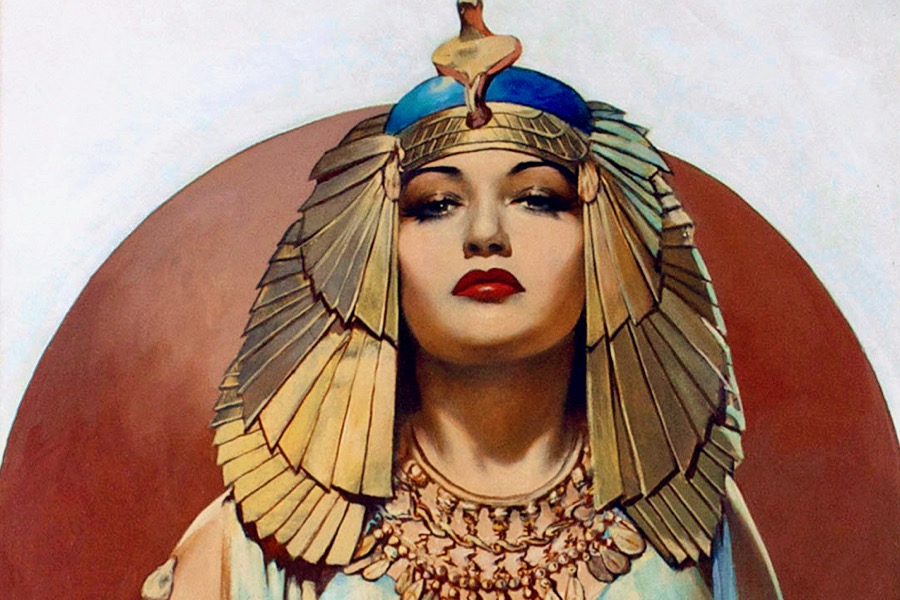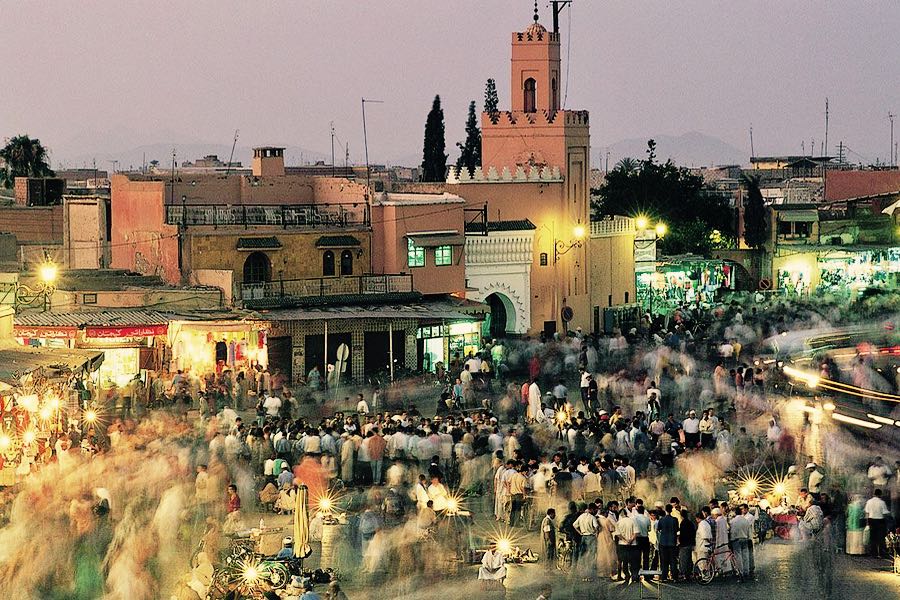Cleopatra: the most beautiful and intelligent person in the East, queen of Egypt. The wonderful woman who stole the heart of the most powerful man of Rome. A strong woman who tried to defeat all her enemies. I came across a documentary (by chance or by fate) about her story full of power, blood, and pleasure. I discovered this great sovereign who fought hard to reach her political position: it wasn’t easy for a woman to reign above an empire and a society full of slaves, surrounded by so many men that yearned for her position, even her own brother.
Cleopatra was a young woman that lived a very hard childhood: she was the daughter of the emperor, and she grew up in a very problematic royal family. Despite the external and internal threats, she tried to survive and reign with rage and courage, trying to find a way to protect her kingdom and her people. The mother of the Egyptians, gorgeous, empowered, rich. She gained everything she had, becoming a legend and a daydream for anybody, men and women.
Oil and Water
I also like her passionate love for Rome’s political men, either if it was born to protect her reign and her political status or just a pure feeling. The north-African woman had always been considered (and still is nowadays) a symbol of beauty with her big dark eyes, long curly hair, and fair complexion: the movements of the belly dance have always had a strong erotic power over men. But- let’s be honest here- how many in Rome were happy about the romantic relationship between Marco Antonio (the most important political man in Rome) and Cleopatra (queen of Egypt)? History is a circle: it always repeats itself. Even nowadays, how many people get along with a relationship between an eastern woman and a western man?
Cleopatra was a determined woman, but she wanted to mix oil and water, at the same time, she wanted to save her people and experience an impossible love story. In the end, she took her own life, trying not to fall into her enemy’s hands, after the fall of Egypt.

Reginald Arthur, “The death of Cleopatra” (1892)
Brave Women
I am proud to belong to the Middle East African geographic area: for us, Cleopatra represents the oriental woman who always fought to protect her own land and her people, someone who has had great inner strength, despite the circumstances. Lots of people tried to tear her down and to belittle her. Even so, she has always found a solution, a way out. The African and oriental woman can be submitted and deprived of her voice in the eyes of the West, but actually is a force of nature and has always tried to make a difference, to survive inside sexist societies.
I saw Cleopatra in the Palestinian woman who, with a rock in her hands, tries to defend her family, her home, her land. I saw her in Ahed Tamimi, the brave Palestinian girl that was arrested only because she was trying to protect her house, and slapped an Israeli soldier. I saw her in the Nigerian woman who traveled across the desert, through the war-zone in Libya and the Mediterranean Sea to save her own and her child’s life. I saw her in the Moroccan widow woman who sells fruits and vegetables at the marketplace to maintain her family. I saw her in many Arab women emigrated to study or work, who try to fight and withstand every day to be free and to grant a better life for themselves and their families.
In Asian and African history, there have been many queens: strong, rich, beautiful, proud, and educated. Their stories were denied, hidden under the veil of closed-minded societies, destroyed by many wars. Often the death of these queens meant the end of their people.

Émile Vernet-Lecomte, “Femme berbère” (1870)
The Berber Warriors
For example, in the modern days, we still talk little about Amazigh warrior women (or, how they usually call themselves, Berber), who tried to defend their land, their language, and their people from the Arabic conquest of the Northern Africa between 695 and 705 a.C. The symbol of the resistance to the Arab invasion is a woman, the famous warrior-queen Dihya (in Arabic is called Kahina, in other words, “sorceress, fortune-teller”), sovereign of the Gerawa Berber tribe. It is told that she had great beauty, strength, and courage: with her iron-punch, she ran her army against the Arab Muslims that wanted to conquer North-western Africa.
After the defeat of the Amazigh tribe, her cultural identity, her language, and traditions were erased in all the North Africa countries (including Morocco, which still uses Berber as its official language, also thanks to the bond with the Islamic religion). In the history of the Arab countries there is a lot of talk about the French and British colonization, but little about Arab Muslims’ conquests to the detriment of the Amazigh people.
Girls in Love
As the last love and courage female story, I would like to share with you this story of a lesbian couple: Fad and Nanz (these are pseudonyms chosen by the girls themselves). After their meeting on Snapchat in 2017 in Saudi Arabia, they started to hang out and fell in love. They started a secret love story, secretly from their families: they couldn’t show their love or even talk about it, because the society doesn’t accept homosexuality and institutions condemn it with extreme severity.
In 2019 Nanz’s family began to get suspicious about her sexual orientation because she, after so many marriage proposals, accepted no fiancé. That’s why these two young women had to escape from Saudi Arabia and went to London, where they now freely live their sexuality and don’t wear the veil. Many Arab commentators condemned their relationship on social media and criticized their photos and videos. Nanz’s parents decided to disown their daughter, while Fad’s family (even though they don’t accept her homosexuality) decided to maintain their relationship.
Their case is neither the first nor the last: many women abandoned Saudi Arabia because of the actual regime. They did it to get a better life. But us, Saudi Arabia and the Middle East women have the force of nature and are capable to withstand all circumstances.
H.M.
©2020 Il Grande Colibrì
images: Henry Clive / Reginald Arthur / Émile Vernet-Lecomte




